A few weeks ago it was the 30th anniversary of Smells Like Teen Spirit being released.
The single that catapulted the seminal Nevermind album to (at the time) unprecedented commercial success, made Nirvana a household name, and – depending on who you ask – either changed music, shattered the earth, shifted the cultural paradigms, paved the way for a counter-cultural revolution… or was an overrated work by a band that is more famous than it deserved to be.
Or it was just a really, really great album, kicked off by a really, really great single.
I don’t usually commemorate the release of singles (only albums), but if ever there was something fit to be an exception it would be ‘Smells Like Teen Spirit’.
And yes, I remember the first time I heard ‘Teen Spirit’, and yes, it’s a cliche now to say it, but it changed my sense of music entirely: and, truthfully, it changed my life and began a rapid re-alignment of my sensibilities and tastes.
That might be giving one song too much credit: the real credit should be Nirvana as a band and Nevermind in general rather than ‘Teen Spirit’ specifically – but ‘Teen Spirit’ was the start-point and there’s no getting around that.
And the main reason I ever picked up a guitar myself for the first time was to learn how to play the ‘Teen Spirit’ riff and ‘Lithium’.
It became easy for us to become jaded about Teen Spirit; having heard it so many times, seen it analysed or reinterpreted for years and years, etc. It is so shrouded in myth and anecdote, has acquired so much extraneous aura and so much debris orbiting around it, that approaching it as a ‘subject’ is virtually impossible without resorting to cliche; and increasingly difficult to talk about without some glum-faced music fan or another calling it ‘overrated’ or calling the very act of commemorating it a cliche.
That kind of backlash was inevitable the moment people started calling ‘Smells Like Teen Spirit’ the “anthem for a generation” or the song that “changed music”, etc. It became even more inevitable when ‘Teen Spirit’ began appearing on critics’ or journalists’ All-Time Top Ten lists or Greatest Song Ever articles.
In fact, ‘Teen Spirit’ has topped a number of magazines’ or websites’ polls of the greatest single ever or the most iconic song of all time.
As soon as that starts happening and the brilliance or status of a thing is perceived to have become canonised into an orthodox opinion, a lot of people will start disavowing it (although, come to think of it, people don’t really do that with ‘Bohemian Rhapsody’).
I’m not one of those people, however.
But there is so much around or associated with just this one song, that we might almost forget just how fucking amazing a song it actually is: and, in truth, most of those who object to it aren’t really objecting to the song itself, but to its deification.
Even all these years later, I don’t think there’s ever been a song that has blown me away so instantly, so viscerally, as that song did. There are great songs and great singles for all kinds of reasons; but ‘Teen Spirit’ is the musical equivalent of an atom bomb annihilating everything within a huge radius and completely reconfiguring the landscape.
Some great songs take time to grow on you, or reveal themselves gradually: Teen Spirit hits you from literally the first bar. That immediate riff/intro, the way Grohl’s drums power us in and then the way the riff fully swamps over us, to the refrain of Kurt’s insanely simple two-note bit over the steady rhythm section, to the explosion of the chorus (a chorus that even a fish would remember), and all the way through to the simplistic perfection of the solo.
‘Teen Spirit’ is both very simple and immensely powerful: whether it is so powerful because it so simple would be an interesting question, but I’m not sure if that’s the case. What is always notable about it, however, it its immediacy: it hits you right from the first moment and in the most direct, non-subtle way, and it just pounds you relentlessly.
I hear some people dismiss it for how simple it is and point to lots of other ‘great songs’ or music that is more complicated and somehow therefore more impressive: which is a questionable way to judge the ‘quality’ of music and also seems a little elitist. Not that there’s a definitive rule book for what makes a great song: but sometimes a simple, direct and unencumbered composition makes for much more potent music than a self-congratulatory song that’s disappearing up its own arse in guitar solos and time-changes.
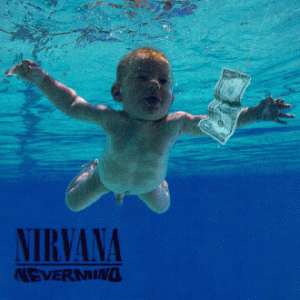
‘Teen Spirit’, like most of Nevermind, thrives on its purity of composition and almost on its innocence.
It will have been the first Nirvana song most people ever heard. It was also an extraordinarily potent way to start an album: Teen Spirit could’ve appeared anywhere on the track-listing, but as the opening track it announces the album in an epic blast of pure power.
You would think that would make it impossible for the rest of the album to live up to that opening or to hold to the same standard: yet Nevermind doesn’t suffer that problem. Most of the album consists of 10/10-level tracks: but ‘Teen Spirit’, as the opening act, is the most potent statement of intent imaginable.
The song is also mathematically perfect. If you play it backwards, it sounds almost as good as forward. That may seem an odd observation, but it’s true – try it. Most songs – even great songs – don’t work that way; it might be in part down to the purity and simplicity of the composition. The fact that it also renders so hauntingly and so perfectly when converted to classical, orchestral or violin based interpretation (as has been done on numerous occasions) is also probably testament to the underlying power and simplicity of its original construction.
Take this with a pinch of salt, but ‘science’ has also apparently decided ‘Teen Spirit’ is the most iconic song ever: which will annoy haters even more, as it pushes it even more into a kind of orthodox opinion than even the critics’ polls do.
Aside from the simplicity of the four-chord riff and general structure, the guitar solo echoes the simplicity of the whole composition; as it is simply the same melody as the vocals on the verses. And it isn’t – as some claim – a case of Kurt not being a great guitarist: after all, you can listen to him craft out some brilliant solos on songs like ‘School’ and ‘Blew’ on the Bleach album.
He must have simply decided that the verse melody would make a more focused, resonant ‘solo’ and would fit the overall composition better (the same technique is used on ‘Come As You Are’, which aurally and tonally always seemed married to ‘Smells Like Teen Spirit’, even though the songs are structurally and thematically very different).
And he was right: that solo is beautiful and haunting, and it also demonstrates why sometimes less is more – reimagining ‘Teen Spirit’ with a rambling, rock n’ roll guitar solo like a Slash or a Mike McCready might’ve come up with is frightening.
Butch Vig‘s production acumen also deserves a lot of credit, just as it does on most of Nevermind. He got the perfect mix to render each instrument at its most potent, particularly the drums; there are not many bands or many famous songs in which you overtly notice or think about the drums, but with Nirvana and with ‘Teen Spirit’ you certainly do.
Vig also had the clever touch of having the final note of Kurt’s solo echo and reverberate into the third verse, which gives a haunting feel to that final part of the song.
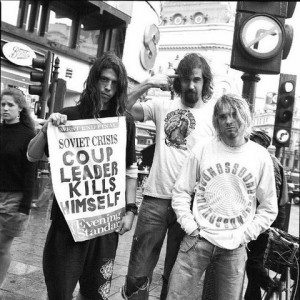
He also got Kurt – who was averse to multiple takes and also to double-tracking – to double-track his vocals for the choruses (supposedly by reminding Kurt that John Lennon sometimes double-tracked his vocals too), giving them that extra powerful dynamic.
Kurt’s sometimes hoarse, cracking voice on the verses is also compelling and suits the overall tone perfectly: it sounds at times almost like he’s playing a character, or a parody of himself.
The riff comparisons to Boston’s 70s hit ‘More Than a Feeling’ didn’t seem to bother Kurt and the band in fact played to this hilariously during their headline set at the 1992 Reading Festival, when Kurt makes a false ‘Teen Spirit’ start that gets the crowd roaring, but then goes instead into ‘More Than a Feeling’. Krist Novoselic sings the Boston lyrics in a gloriously mocking, out-of-tune voice, before they halt and properly go into ‘Teen Spirit’.
Kurt and Krist in fact suggested the song was more influenced by The Pixies and might even have been a “Pixies rip-off”.
What’s also remarkable about ‘Teen Spirit’ is that, for such a commercially successful single, it is not really a commercial sounding track at all and isn’t – despite all of its radio play and mainstream crossover effect – a ‘radio friendly’ song in the obvious sense.
Where we could talk about a few other ‘breakthrough’ commercial ‘hits’ that some alternative acts had in those years – take, for example, ‘Under the Bridge’ by the Chilli Peppers, ‘Jeremy’ or ‘Alive’ by Pearl Jam, or half a dozen REM singles – those were all songs (and this isn’t meant in a disparaging sense at all) that could easily sit in the ‘hit parade’ of mainstream radio.
‘Teen Spirit’ wasn’t like that at all: it’s an angry, abrasive, and violent song, with heavy drumming, heavy riffage and blistering choruses, and with lyrics that can’t be sung along to easily and are sometimes even indecipherable.
For all the disparaging reference sometimes to Nevermind and ‘Teen Spirit’ as ‘pop’, I’ve never agreed with that.
When you listen to ‘Stay Away’ or ‘Territorial Pissings’, it’s difficult to characterise Nevermind as a ‘pop’ record; and even the singles, ‘Teen Spirit’ and ‘Lithium’ are really not ‘pop’ singles in any sense other than the sense that they happened to make the charts.
Had that single – and that album – not become so commercially successful, no one would think of them as ‘pop’. And for all its tunefulness, it has always astonished me that ‘Teen Spirit’ was able to become as popular as it did, being as heavy and as abrasive as it is.
It would not get anywhere near the pop charts if it was being released today, nor would it be played on MTV.
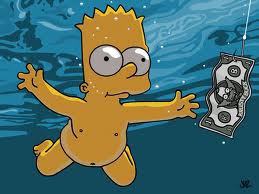
I’ve never entirely understood the meaning behind the lyrics: and most people haven’t. In fact, it is likely Kurt didn’t have a clear meaning either, with his explanation altering and contradicting over the years.
One of the famous anecdotes around the song, which has passed into popular lore, concerns another cultural icon, Kathleen Hanna (Bikini Kill, Julie Ruin) spray painting the words ‘Kurt Smells Like Teen Spirit’ on his wall; this being a reference to a deodorant that was popular among teenagers at the time. Kurt apparently didn’t know it was a deodorant brand and thought it was a clever bit of word play on Hanna’s part.
It’s an endearing story, which is generally corroborated by Kathleen Hanna and is therefore probably true; it’s also endearing that she had that part to play in what would be such a significant song.
“The entire song is made up of contradictory ideas… It’s just making fun of the thought of having a revolution,” Kurt is quoted as having said. “But it’s a nice thought.“
Dave Grohl expressed doubt that the lyrics had any deep meaning, explaining how he watched Kurt write the lyrics about five minutes before singing them. Like most of the lyrics on Nevermind and In Utero, the sense is that Kurt could mean a lot of things at the same time and often not mean anything at all. The lyrics are often cryptic, but moreover they are self-contradicting in a way that Kurt openly admitted was a conscious process. The lyrics to ‘Teen Spirit’ are mostly sarcasm and, as he said, ‘making fun of the thought of revolution’.
For all the hackneyed, cliched talk of ‘Teen Spirit’ being the “anthem for a generation”, it probably actually was and is the perfect anthem, with all of its lyrical confusion, uncertainty and misdirected (or, more accurately, its omni-directional) anger – yet married dualistically to the sheer clarity and potency of the composition itself.
Kurt also said it was partly about his own apathy and “spinelessness” and the apathy and spinelessness of his generation, while Novoselic later said it was an attack on the mass mentality of conformity.
I doubt that any of that went through Kurt, Krist or Dave’s mind at the time – they were just trying to make a kick-ass track. And they did. But it happened to be the right track at the right time: and its arrival happened to become a defining moment not just for the band and not even just for a specific time in music or culture, but in many people’s lives and many people’s sense of identity.
It might be a cliche to say it, but it isn’t an exaggeration to say that it was a genuine generational moment. People remember hearing ‘Smells Like Teen Spirit’ for the first time – people talk about it in the same way some other people talk about 9/11 or the Moon Landings: because it made that much of an impression and became that much of cultural reference point and that much of a moment in time.
But if ‘Teen Spirit’ has been analysed to death in the two and a half decades since Kurt died, it was also already being dissected and deeply examined even at the time.
The impression was also always that Kurt got bored very quickly with having to explain the lyrics or meaning to journalists, once tiredly telling an interviewer “whatever you want to make of it – it’s your crossword puzzle.“
Kurt also had a shaky relationship with the song once it had had so much of an impact, and Krist and Dave also expressed frustration that everyone wanted to talk about ‘Teen Spirit’ as if it was the only Nirvana song.
We can understand that, of course. After all, Nevermind was an amazing album full of great songs. And you didn’t see, for example, Pearl Jam get tied down to ‘Alive’ or ‘Jeremy’ or REM get tied down to ‘Losing My Religion’ in the same way.
And Nirvana, more to the point, came from – and subscribed to – a more indie/punk sensibility that didn’t seek to deal in ‘hit singles’, MTV awards or cigarette lighter songs: ‘Teen Spirit’ might’ve ended up being an embarrassment in that context.
The band went a whole bunch of shows, at the height of ‘Nirvana mania’, without even including it on their set-lists. And what’s interesting is that when you watch the footage of some of those old shows, ‘Teen Spirit’ seems to be the song played with the least conviction.
You even sense that Kurt could only make it work for himself in a tongue-in-cheek sort of way; like doing the ‘More Than a Feeling’ gag at the 1992 Reading Festival or like doing the mocking, almost Gregorian chant style rendition on Top of the Pops in 1991.
That TOTP performance, for that matter, is legend all in itself: and is generally regarded as the single greatest moment in TOTP’s long history. Unwilling to mime the performance – as was the standard TOTP procedure – Kurt sings the entire song in a low baritone and sounds (and appears) almost monk-like, while Krist and Dave make a complete, deliberate farce of pretending to mime their instruments.
The whole thing is a glorious joke, ending with the first ever stage invasion in the programme’s decades-long history.
What the whole thing also demonstrated was Nirvana’s complete disdain for industry processes, commercial platforms and television: Kurt even dons a pair of rock star shades, but manages to look cooler in them than anyone else ever did, with a cheesy grin on his face. As humorous as it was intended to be, I’ve always liked this rendering of the song so much that I wished they’d recorded a version of it.
It’s the TOTP performance most people remember when it comes to ‘Teen Spirit’, Nirvana and British television (and it is worth noting that Nirvana were always a bigger deal in Britain than in America): however, their ‘Teen Spirit’ performance on Channel 4’s infamous The Word show came first. The Word subsequently assigns itself credit for “breaking Nirvana” into British pop consciousness; a claim that is regarded dubiously by others.
Terry Christian recalls Nirvana’s presence at the Channel 4 studio and describes Kurt being lethargic and half asleep most of the time, alternating between dozing off and drinking cups of coffee and perking up again. The ‘Teen Spirit’ performance on The Word is much more energetic and raucous, though Kurt’s vocal is a little faltering (and is ironically actually better in the TOTP gag performance).
On that note, it has always occurred to me that there are very few (recorded) live performances of ‘Teen Spirit’ in which Kurt manages a great vocal performance.
One suspects that – particularly by 1992 – Kurt’s voice was finding it very difficult to manage the strain of those choruses. The stomach problems may have been a factor too, but Kurt also complained later about having to scream at the top of his lungs every night – and the ‘Teen Spirit’ choruses would certainly have been a particular strain. Remembering also that Butch Vig double-tracked his voice on the recorded version, it may have essentially been impossible for Kurt to vocally produce the power needed for those choruses.
Which would also – combined with the band’s general mixed feelings about the song’s semi-mythical status – explain why ‘Teen Spirit’ might’ve become a bit of a burden.
I may be overstating or over-analysing; but it just never seems to me that Kurt ever rendered ‘Smells Like Teen Spirit’ with the same vigour or conviction as he played songs like ‘Lithium’ or ‘Drain You’ or ‘Aneurysm’.
People also inevitably associate the single with the music video; a video that was on mega rotation on MTV and is credited with having propelled the single to its commercial success. I actually don’t even think it’s Nirvana’s best video – for me, both ‘Heart Shaped Box’ and ‘Come As You Are’ had much more interesting videos. But for a video that captures some of the essence or spirit of the song, Samuel Bayer’s video for ‘Teen Spirit’ is perfect.
The video was based on the idea of a school concert that boils over into a riot and was inspired in part by Jonathan Kaplan’s 1979 movie Over the Edge.
The video really does capture that same idea that Kurt’s dry lyrics do about a mock revolution and a wave of omni-directional anger and revolt that is ultimately directionless and impotent – yet driven by a piece of music that, on the contrary, is as direct and potent as anything could ever be.
In addition to all the deliberate and apathetic contradictions in the lyrics, the music/video dynamic is itself therefore a great contradiction; and somehow, the droll add-on of the elderly janitor and his mop (which apparently was Kurt’s idea and was a reference to him having to go back to the school he’d been so alienated in, but as a janitor) seems to confirm this sense of futility.
For all that works well in the video, Kurt himself wasn’t entirely happy with it. It is said that Kurt had wanted the cheerleaders in the video to be unattractive; but that Bayer had disliked that idea and ended up hiring the cheerleaders from a strip club.
The ‘Teen Spirit’ video was in fact Samuel Bayer’s first; and he later said he thought he was hired because his test reel was so bad that it would be welcomed as suitably “not corporate”. Bayer would also later direct a number of other iconic videos of the time, including several for Blind Melon (including the iconic ‘No Rain’ video), Hole’s ‘Doll Parts’, The Cranberries’ ‘Zombie’ and Smashing Pumpkins’ brilliant ‘Bullet With Butterfly Wings’ video, as well as numerous other videos for artists as diverse as Garbage, Green Day, Michael Jackson and David Bowie.
The song has of course been also been parodied or covered and reinterpreted a whole bunch of times by vastly differing artists and with varying results. Some dislike Weird Al Yankovik’s ‘Smells Like Nirvana’; but I always liked it, considering it genuinely funny and the right side of tasteful (“A garage band from Seattle/Well, it sure beats raising cattle” is one of Weird Al’s funniest ever lines). I also always liked Tori Amos’s subdued, piano version (but I am generally a Tori Amos fan anyway) on her classic Crucify EP in 1992 (another great single).
Converting the song to piano or to either orchestral or string-based form has also yielded hauntingly potent results: there are lots of examples, but of particular note is the 2 Cellos rather moving homage, which serves to strip down the song to its most basic interpretation and expose just how beautiful the underlying melody is.
Of course, as with all misappropriated art, the song has also been violated and shat on by the wrong people too: the less said about Miley Cyrus and Take That both covering ‘Teen Spirit’ in concert the better. And the Moulin Rouge film reimagining the Nirvana song seemed ill-fitting: as did the recent acapella version that opened Marvel’s Black Widow movie.
I actually do own the CD of the ‘Smells Like Teen Spirit’ single (along with ‘All Apologies/Rape Me’ and ‘In Bloom’), because I was lucky enough to have spotted it in the bargain bucket of my local music store only a few months before Kurt killed himself; had it been after that, no doubt it would have been flogged at a higher price and in the front window.
Acknowledging that ‘Smells Like Teen Spirit’ is 30 years old makes me feel a little older than I usually like to. But it hasn’t lost any of its dynamism or potency in those 30 years. In fact, I can’t think of any song I’ve heard in all that time that matches it for sheer sonic power, immediacy, or for that extraordinary sense of revelatory experience that hearing it for the first time produced.
It remains by far the most powerful and most significant single I’ve ever heard: whether it’s my favorite song of all time, I’m not sure – but it’s certainly up there.
And all of those in the ‘Smells Like Teen Spirit’ and Nirvana are ‘overrated’ club are simply in denial: and probably motivated primarily by irritation that their own favorite band or song isn’t as celebrated or regarded to the same extent. I can get that: there’s a bunch of artists, albums or songs that I was always annoyed were not celebrated enough or given enough respect – we all have those (and Kurt Cobain certainly had those: and himself did more to give exposure to as many of those bands and artists than anyone else did, striving to make his success to their benefit).
But that’s really a separate issue.
And when you strip away all the extraneous stuff – all the years of anecdote, polls, backlash or baggage – and just sit down and listen to this track like you did the first time you ever heard it, you just can’t fuck with it.
It’s just a brilliant, perfect, sublime piece of music that never gets old and never loses its pure, primal power.

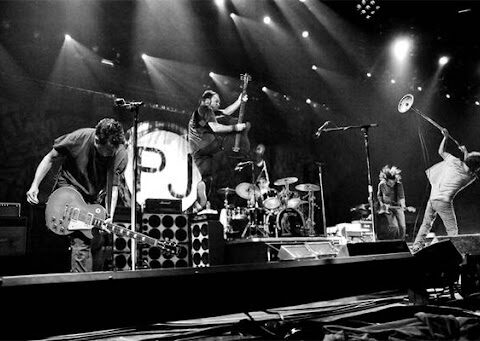
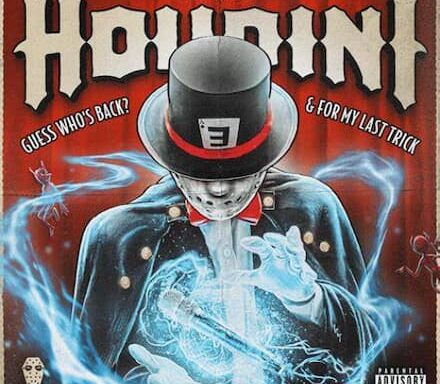
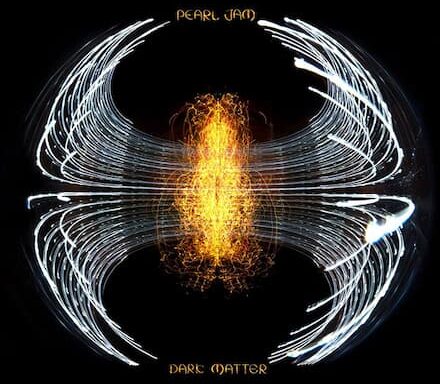

Apparently comments are not actually posted here, doubt if I’ll ever return
Hi yepper. Sorry for the delay in the comment publishing. Comments *are* posted here; but whenever someone new comments for the first time, the comment has to be manually approved before it appears on the page. Any comments you make from now on should publish automatically. It’s just how the software appears to work. Thanks for commenting.
Meh… The success of Nirvana was yet another proof that popularity is a created thing, mainly because the vast majority isn’t serious about music and definitely not serious about discovering the quality stuff that can leave them amazed and spellbound…it takes some work… and passively listening to whatever is foisted at you is not “work”.
Word to the wise, Who were Cobain’s Heros? The Meat Puppets. And they wrote half of Nirvana’s most popular stuff – and played it with way more skill and musicality.
Listen to anything done by the Meat Puppets in the 90s, Live or otherwise, and be amazed at the joy of it all, and the combination of talent and huge amounts of practice that is self evident as the speed and agility smack you in your face. Listen to forbidden places album or too high to die first – UNIQUE and the next logical step in music with one foot in the past – in the 2000s the generations of smart phone stupidity dropped the ball – CULTURE IS DEAD in the world of the “master” tribe.
I’m a fan of the Meat Puppets; but I’m not sure what you mean when you say they wrote half of Nirvana’s popular stuff. I’ve never heard that before: and it seems unlikely.
I also can’t agree that Nirvana’s success was a created thing – other than that it was released on a major label (and you could argue the success was ‘created’ in that sense?). But Geffen hardly promoted the album at all. Anything successful in commercial terms is, to some extent, ‘created’. Nirvana’s success was, in rock terms, the closest thing I can think of to an unexpected success: where neither the record label nor the artists themselves were expecting or planning for any kind of major commercial breakthrough.
But, again, i like the Meat Puppets. And I probably agree with you about the 2000s.